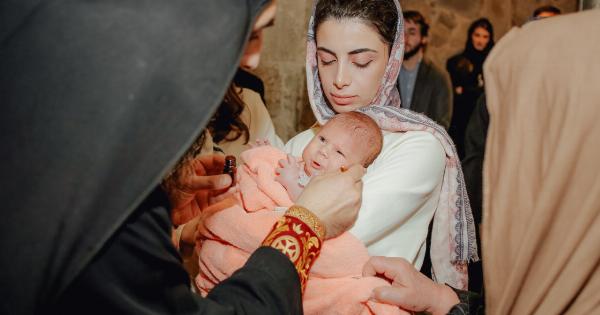The Orthodox Church, also known as the Eastern Orthodox Church, is one of the oldest Christian religious traditions in the world.
With a rich history and diverse set of practices, the Orthodox Church holds significant influence over the lives of its followers. However, recent research has explored the potential connection between certain Orthodox practices and an increased risk of cancer.
This article delves into the topic, examining the potential links and shedding light on the importance of awareness and education.
The Role of Dietary Practices
One key aspect of Orthodox practices is the observance of fasting periods throughout the year. These fasting periods involve abstaining from certain types of food, including meat, dairy products, and fish.
Instead, Orthodox followers consume a plant-based diet during these periods. While fasting has been lauded for its potential health benefits, it is vital to consider the balance and variety of nutrients in the diet.
Research suggests that certain dietary patterns associated with fasting, such as a low intake of animal protein and increased consumption of fruits and vegetables, may lower the risk of certain types of cancers.
For example, a plant-based diet rich in antioxidants, vitamins, and fiber has been linked to a reduced risk of colorectal cancer. However, it is crucial to note that the effectiveness of fasting in reducing cancer risk may depend on various factors, including the overall quality of the diet followed during non-fasting periods.
Impact of Lifestyle and Physical Activity
Besides dietary practices, Orthodox traditions often encourage a disciplined and structured lifestyle. Regular physical activity is emphasized, with activities like walking, hiking, and communal work often incorporated into daily routines.
Engaging in physical exercise has long been associated with a decreased risk of certain cancers, including breast, colon, and lung cancers.
Moreover, the Orthodox Church promotes moderation in lifestyle choices, discouraging excessive alcohol consumption and tobacco use.
These practices align with general recommendations for cancer prevention, as excessive alcohol consumption and tobacco use are well-established risk factors for various cancers, including liver, throat, and lung cancer. By following these teachings, Orthodox practitioners may inadvertently reduce their cancer risk.
Influence of Spirituality and Mental Well-being
The Orthodox Church places significant importance on spiritual well-being, fostering a sense of community, and offering support systems for its followers.
Spirituality and mental well-being play crucial roles in overall health, including cancer prevention and treatment outcomes. Studies suggest that individuals with higher levels of spirituality and connectedness exhibit better psychological well-being, coping mechanisms, and even improved outcomes in cancer treatment.
The support systems provided by the Orthodox community, such as prayer groups, counseling services, and a network of fellow believers, may contribute to better mental health and resilience in the face of cancer.
Maintaining strong social connections and having a sense of purpose and hope are key factors in reducing stress levels and promoting a positive mindset, which can enhance the healing process.
Educating and Raising Awareness
While certain aspects of Orthodox practices may offer potential benefits in terms of cancer risk reduction, it is crucial to approach the topic with caution and focus on comprehensive education.
Awareness about the importance of a balanced and nutrient-rich diet, regular physical activity, and the avoidance of harmful habits such as tobacco and excessive alcohol use is essential for everyone.
Education within the Orthodox community should focus on the impact of fasting on overall health and emphasize the need to maintain a diverse and nutritionally adequate diet during non-fasting periods.
Encouraging regular physical activity and promoting mental well-being should also be central to cancer prevention initiatives. By incorporating evidence-based practices into religious teachings, the Orthodox Church can play a vital role in fostering a healthy lifestyle consistent with cancer prevention guidelines.
Conclusion
The relationship between Orthodox practices and cancer risk is a complex topic that warrants further exploration.
While certain aspects of Orthodox traditions, such as dietary practices, lifestyle choices, and spiritual well-being, have the potential to influence cancer risk, it is essential to approach these findings with nuance and caution. Emphasizing comprehensive education and raising awareness about the importance of a balanced and healthy lifestyle can enable the Orthodox community to make informed choices that align with cancer prevention guidelines.






























